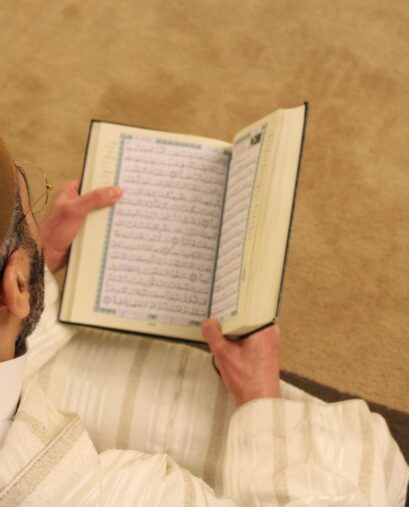What are the Shari’a succession laws? Part 3/3

In the third and final article of our Shari’a law series, Jo Summers, a published author and expert on the application of Sharia law, discusses the Shari’a laws of succession.
Known as mawarith, Shari’a succession laws can affect estate planning, and private client practitioners should be aware of how, as well as the differences between Sunni and Shia succession laws.
Since around 90% of the world’s Muslims are Sunni, it is more likely UK practitioners will need to understand the Sunni succession laws. The following are the standard Sunni succession laws.
How is the estate applied?
The estate is applied in the following order:
1. The estate pays the expenses of enshrouding and burial of the deceased;
2. The estate must fulfil any monetary or religious debts the deceased may have had;
3. From the remaining wealth, a third will be allocated on fulfilling the will of the deceased;
4. The remaining two thirds will be distributed amongst the heirs of the deceased, as ascribed by the Shari’a.
The third point above, relates to the ‘freely disposable third’. This means the testator can distribute up to one-third of their net estate to charity or to individuals who are not heirs, under the Shari’a rules of succession.
Rules applying to ‘freely disposable third’
Certain rules apply to this ‘freely disposable third’ including:
- Any bequest to non-heirs will only be valid up to a maximum of 1/3rd of the estate (it is not possible to give more than 1/3rd to non-heirs, except under the default provisions set out below).
- There is no obligation to distribute this 1/3rd to non-heirs, so the testator may prefer to leave their entire estate to the Shari’a heirs.
- Bequests cannot be made from the freely disposable third to people who are already Shari’a heirs, (in other words, the testator cannot try to favour one heir by giving him/her more than the amount they are entitled to under Shari’a law).
The remainder of the estate (a minimum of 2/3rd) is divided between the Shari’a heirs.
As with many civil law jurisdictions, Shari’a law has a system of pre-determined heirship. Again, strict rules apply to the residuary estate, including:
- The Shari’a heirs cannot be deprived from their entitlement to inherit.
- The heirs’ entitlement is fixed, depending on the number and nature of the heirs who survive.
- It is not possible to say in advance who will inherit. It is only at the date of death, that the division can be calculated.
Types of Shari’a heir
There are two main types of Shari’a heir who are entitled to inherit.
First, the estate will be distributed amongst the Ashabul Fara’id (also known as Zawil Furood). These are the obligatory or primary heirs: those individuals whose share has been prescribed in the Shari’a.
After the Ashabul Fara’id receive their prescribed share, the remaining estate will be distributed amongst the Asabat (plural of asaba which means residuary).
Asaba are those relatives of the deceased who receive the remainder or residue of the estate, after the primary heirs have received their shares. If there are no primary heirs, then the residuary (Asaba) heirs will receive the estate in its entirety.
Complex default provisions
The Shari’a default provisions can be quite complex:
1. First, if there are no residuary heirs, then the entire estate is divided between the primary heirs pro rata to their original entitlements.
2. If there are no primary heirs and no residuary heirs, the estate goes to the Zawil Arham (distant kindred). Zawil Arham are those blood relatives of the deceased who are neither primary heirs nor residuary heirs.
3. If the testator has absolutely no family, so there are no primary or residuary heirs and no distant relatives, then it is possible to create heirs. This can be done in two ways.
- First, the individual can name a Mawlal Muwalat (successor by contract) to receive the inheritance. Muwalat means to ‘befriend’. In Islamic jurisprudence, it refers to a distinct type of contract, Aqd Muwalat or the contract of friendship. This can be a two-way process, so that each person will be a Mawlal Muwalat of the other.
- Second, it is also possible for the individual to ratify kinship with another person, making him an Al-Muqirun lahu bin-nasab.
- In the absence of anyone in the above categories who can inherit, the estate is divided between those heirs who received the freely disposable third. This is the only scenario where non-heirs can receive more than 1/3rd of the estate.5. If there is no one to inherit, then the entire estate goes to the Bayt-ul Mal (the Treasury of an Islamic government).Certain principles of Shari’a law may surprise practitioners who are used to English succession laws.
For example, it is not possible to inherit under Shari’a law via a deceased relative.
So, if the testator has two sons, one of whom predeceased, only the surviving son is entitled to inherit. The deceased son’s own children could only benefit from the freely disposable third.
What is more, no distinction is made between children of different marriages, but illegitimate and adopted children are not Shari’a heirs.
The male heirs, in most cases, receive double the amount inherited by a female heir of the same class. It is also worth adding that individuals who are non-Muslims may not inherit at all.
In one case where English law will was invalid, the deceased was survived by the following people:
• Second wife
• Three children (two sons and one daughter) by a first marriage; and
• Two sons by a second marriage
• First wife (divorced).
According to the certificate of succession, the estate had to be divided into 72 shares, distributed as follows:
Surviving wife: 9/72
Four Sons: 14/72 each
Daughter 7/72
The first wife did not inherit under Shari’a law. No distinction was made between the five children, all of whom were Shari’a heirs, but the sons received twice the amount received by the daughter.
The English law would have given everything to the second wife and her children and nothing to the children of the first marriage. However, the Shari’a certificate of succession overruled the English will.
As a result, inheritance tax became payable due to the loss of the spouse exemption for 63/72 of the estate.
There is no doubt that Shari’a laws of succession are complex, and they cannot be ignored by practitioners.
An English law will could be invalid, if it conflicts with Shari’a laws of succession, depending on the nature and location of the testator’s assets.
This can have an impact on standard UK estate planning, particularly inheritance tax since the spouse cannot inherit the entire estate under Shari’a law.
If practitioners are in any doubt around which conflicting law takes priority, they should seek specialist Shari’a law advice.
Photo by Adli Wahid on Unsplash
Jo Summers is a published author and expert in Sharia'a succession laws and can be found regularly commenting on personal tax matters for the wealthy in The Times & The Financial Times.
Jo Summers Partner - Private Wealth & Tax +44 (0) 20 7846 2370 jo.summers@jurit.comPlease note this paper is intended to provide general information and knowledge about legal developments and topics which may be of interest to readers. It is not a comprehensive analysis of law nor does it provide specific legal advice. Advice on the specific circumstances of a matter should be sought.







